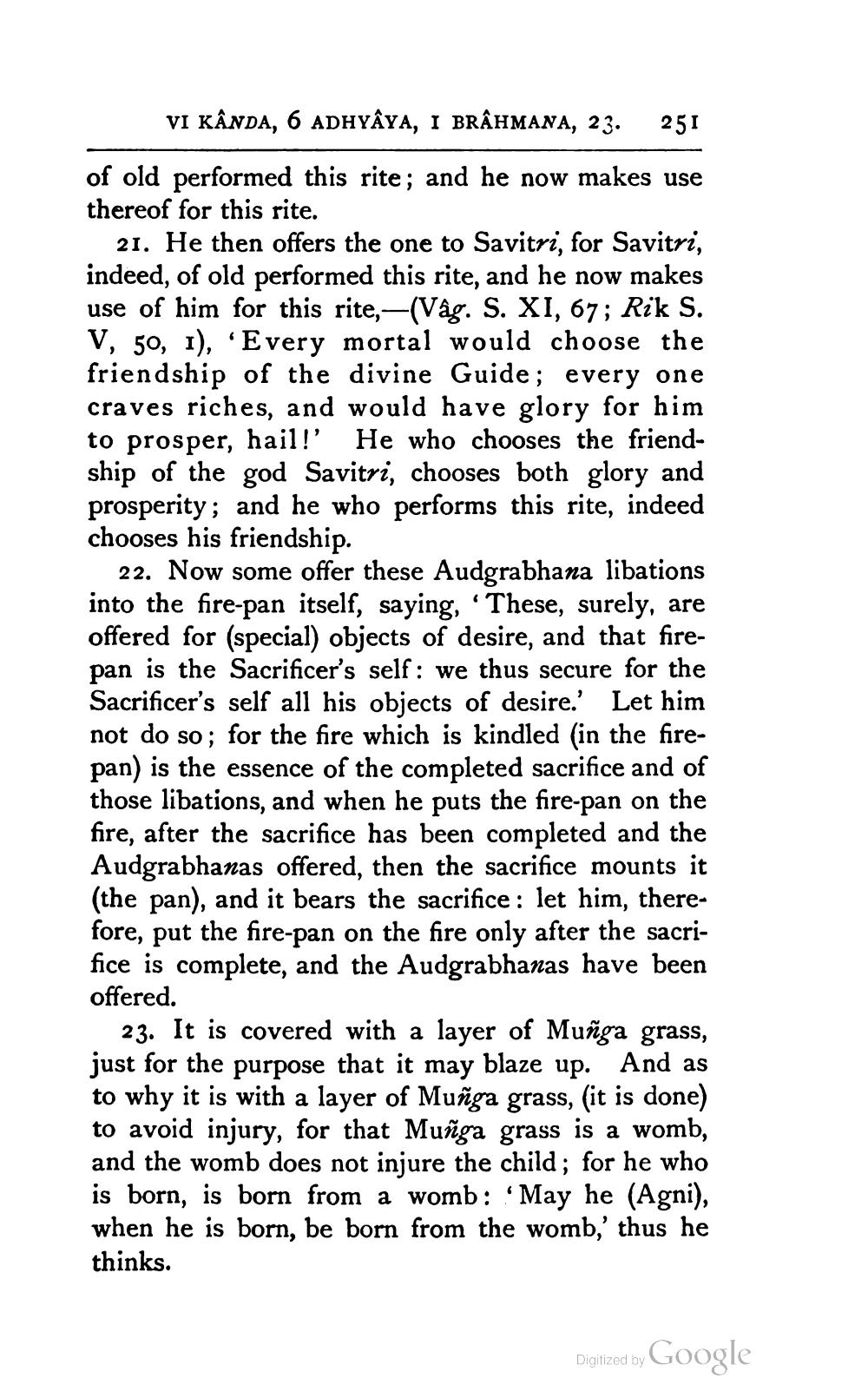________________
VI KÂNDA, 6 ADHYÂYA, I BRÂHMANA, 23.
251
of old performed this rite; and he now makes use thereof for this rite.
21. He then offers the one to Savitri, for Savitri, indeed, of old performed this rite, and he now makes use of him for this rite,- (Vâg. S. XI, 67; Rik S. V, 50, I), 'Every mortal would choose the friendship of the divine Guide; every one craves riches, and would have glory for him to prosper, hail!' He who chooses the friendship of the god Savitri, chooses both glory and prosperity; and he who performs this rite, indeed chooses his friendship.
22. Now some offer these Audgrabhana libations into the fire-pan itself, saying, “These, surely, are offered for (special) objects of desire, and that firepan is the Sacrificer's self: we thus secure for the Sacrificer's self all his objects of desire.' Let him not do so; for the fire which is kindled (in the firepan) is the essence of the completed sacrifice and of those libations, and when he puts the fire-pan on the fire, after the sacrifice has been completed and the Audgrabhanas offered, then the sacrifice mounts it (the pan), and it bears the sacrifice: let him, therefore, put the fire-pan on the fire only after the sacrifice is complete, and the Audgrabhanas have been offered.
23. It is covered with a layer of Muñga grass, just for the purpose that it may blaze up. And as to why it is with a layer of Muñga grass, (it is done) to avoid injury, for that Muñga grass is a womb, and the womb does not injure the child; for he who is born, is born from a womb: May he (Agni), when he is born, be born from the womb, thus he thinks.
Digitized by Google




